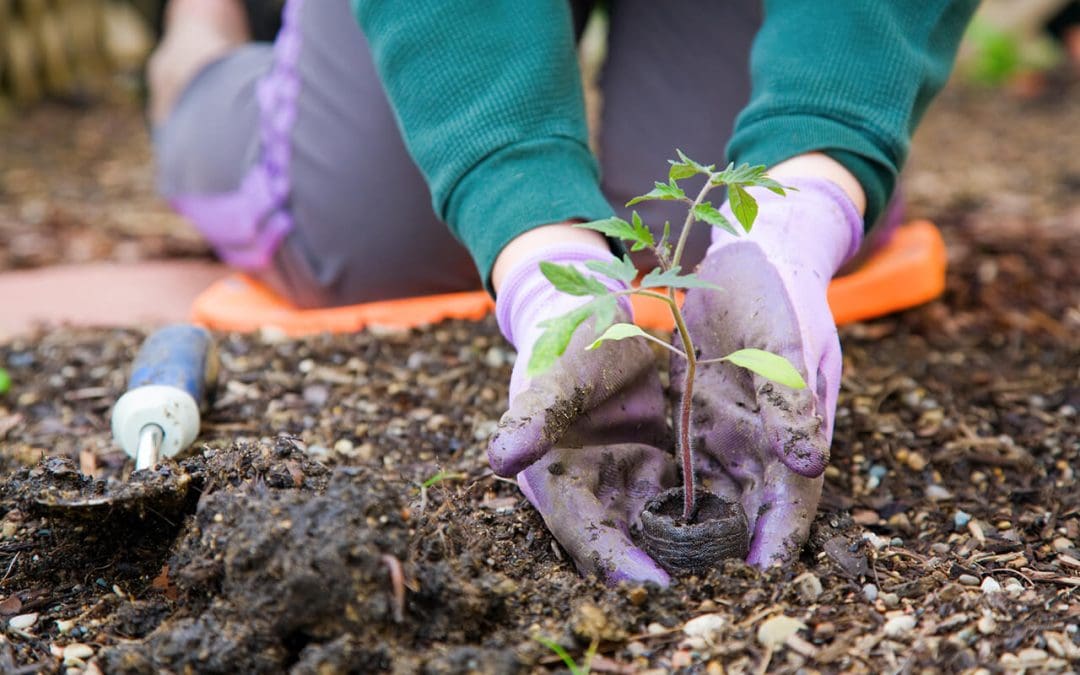As the vibrant blooms of spring begin to fade and the days grow longer and hotter, gardeners face the challenge of helping their plants survive the harsh summer conditions. However, with some strategic planning and simple techniques, you can ensure that your garden survives and thrives during the hottest months of the year. Here are some valuable tips to help your garden survive summer so you can easily get through the growing season.
Water Wisely to Help Your Garden Survive Summer
Proper watering is one of the most critical factors in ensuring your garden’s survival during summer. As temperatures rise, plants lose more moisture through evaporation, so watering them deeply and consistently is essential. Water your garden in the early morning or late evening to minimize evaporation and ensure the water reaches the plant roots where it’s needed most. Avoid watering during the heat of the day, as it can scorch leaves and contribute to water loss.
Consider investing in a drip irrigation system or soaker hoses to deliver water directly to the roots while minimizing waste. Mulching around your plants can also help retain moisture in the soil and reduce watering frequency.
Provide Shade
Just as people seek shade to escape the sun’s heat, plants benefit from some relief during the hottest part of the day. Strategically placing shade cloth or planting taller species nearby can provide shelter for more delicate plants. Additionally, you can create shade with trellises or arbors covered in climbing vines or shade-loving plants. By reducing the intensity of the sun’s rays, you can prevent scorched leaves and heat stress in your garden.
Choose Heat-Tolerant Plants
When planning your garden, select varieties well-suited to hot and dry conditions. Native plants are often excellent choices, as they have adapted to thrive in their local climate. Look for drought-tolerant species such as succulents, lavender, and rosemary, which require less water and can withstand high temperatures. Incorporating a mix of annuals and perennials with varying heat tolerance levels can help ensure your garden remains vibrant throughout the summer.
Practice Smart Soil Management to Help Your Garden Survive Summer
Healthy soil is the foundation of a thriving garden, especially during the summer months. Prioritize adding organic matter such as compost and mulch to your soil to improve its water retention capabilities and provide essential nutrients to your plants. Consider using a moisture-retaining soil additive or hydrogel crystals to help the soil retain moisture during dry spells. Regularly check the moisture levels of your soil to ensure it remains adequately hydrated.
Maintain Good Air Circulation
Proper air circulation is crucial for preventing fungal diseases and heat stress in plants. Avoid overcrowding your garden beds, as this can impede airflow and create a breeding ground for pests and diseases. Prune back overgrown foliage and remove any dead or diseased plant material to promote air circulation and reduce the risk of fungal infections. Additionally, consider installing fans or strategically placing windbreaks to improve air movement within your garden.
You can help your garden thrive during the scorching summer months with care and attention. Watering wisely, providing shade, choosing heat-tolerant plants, practicing smart soil management, and maintaining good air circulation can ensure your garden remains lush and vibrant throughout the season. With these tips in mind, you’ll be well-equipped to enjoy a bountiful harvest and beautiful blooms all summer long.
Summer Gardening FAQs
What should I do with my summer garden soil at the end of the season?
Clean up debris to prevent disease and pest overwintering, add compost or organic matter to replenish soil nutrients, and consider planting cover crops to protect and enrich the soil during the fallow period.
What are the best practices for fertilizing my summer garden?
Apply organic fertilizers before planting or use slow-release fertilizers to provide nutrients gradually throughout the season. Avoid over-fertilizing, as it can lead to excessive foliage growth at the expense of fruit production.
What are some tips for harvesting and preserving summer garden produce?
Harvest fruits and vegetables when they are ripe to encourage continuous production. Preserve excess produce through methods like canning, freezing, drying, or pickling to enjoy your garden’s bounty throughout the year.
How can I maximize space in my summer garden?
Utilize vertical gardening techniques such as trellising for vining plants and interplant compatible crops closely together. Consider container gardening for small spaces or areas with poor soil.
Attic to Foundation provides home inspection services to customers in the greater Atlanta area. Contact us to schedule an appointment.

